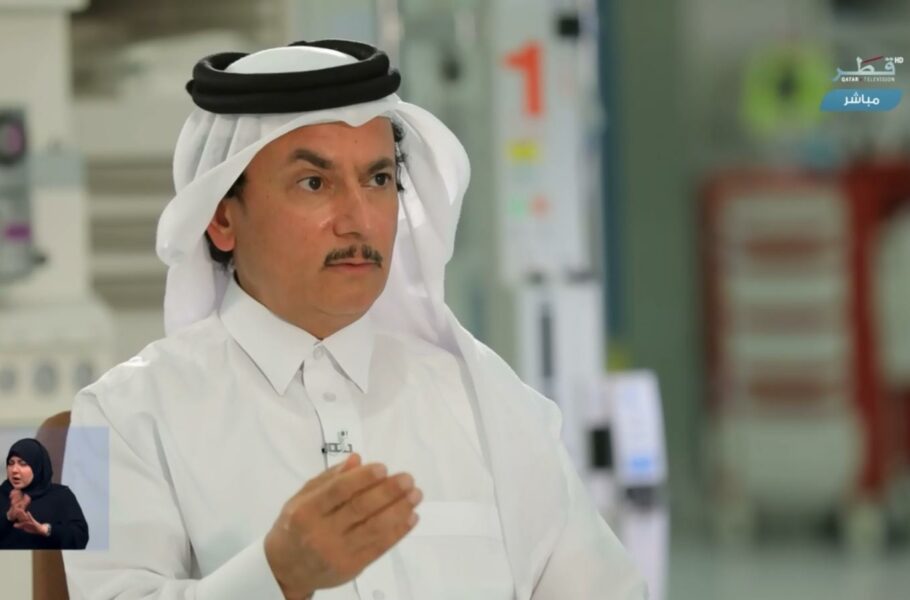
The Chair of the National Strategic Group on COVID-19 and Head of the Infectious Diseases Division at Hamad Medical Corporation Dr. Abdullatif Al Khal said the COVID-19 situation in Qatar is steady and stable in a webinar titled, “Qatar's Response to COVID-19 Pandemic: Lessons Learned” as part of Al Maerifa Public Seminar Series organised by the Texas A&M University at Qatar, according to the Qatar Tribune.
Dr. Al Khal, said, “In the past week we noticed a slight decrease of about 15% compared to the previous week. We can describe the situation of the country at this point as being steady or stable and we are not witnessing a second wave-like in many other countries.”
He explained that the first case was reported in Qatar and was of a Qatari male who had travelled back from Iran and the first case in Qatar of a person who had no history of travel was on 8 March, and the pandemic reached its peak towards the end of May and early June. “Towards the end of May and early June, we had the peak of the pandemic where within one day we recorded more than 2,000 positive cases. With the measures that were implemented by the government and applied through the Ministry of Public Health (MoPH) including the restrictions and precautions, the pandemic relatively quickly started coming down. The numbers declined and have remained somehow steady in the entire population.
He said that there was another wave after the Eid Al Adha and most of the cases in the second wave in Qataris and white-collar professionals were attributed to social gatherings, social visits and social occasions like parties. “It is also trending down over the past couple of weeks.”
According to Dr. Al Khal, the weekly admissions reached 1,859 in the end of Eid and then the trend went down. “As of last week, we had 259 admissions in one week. Every day we had between 35 and 50 patients. Many of those who test positive are not admitted are allowed to stay at home or are put in isolation facility if they don’t have the right home environment. Those who are admitted to the acute healthcare systems are the ones who require oxygen and the supportive therapy.”
He added that there was a peak of 141 ICU admissions in May/early June and then the weekly admissions declined and last week there were 40 admissions to the ICU in total. “At present, we have about 58 patients who are receiving intensive care management in different ICU’s in our system.”
According to Dr Al Khal around 5,000 samples are done every day. “We have the capacity to do up to 25,000 if we need to on a daily basis. At present we run between 5,000 and 9,000 tests a day.”
He added that in contact tracing it shows that for every 100 people who test positive, they find about 9 of the contacts test positive.
According to him, those go with clinical symptoms in the healthcare system and are tested for COVID, between 10 and 12% of them test positive. “This is compared to 35% during the peak towards the end of May.”
According to him, the MoPH tests about 2,000 people every day as part of random surveys where they go to the malls, restaurants and other businesses and the healthcare system and they swab people who are otherwise healthy. “The positivity rate of those ranges between 1 - 2% and the indicator is assuring.”
Cover image credit: Qatar Television
Follow us on our social media channels:
![]() @ILQlive
@ILQlive
![]() @ILQlive
@ILQlive
![]() @ILoveQtr
@ILoveQtr
![]() ILoveQatar
ILoveQatar

You have successfully registered your account!
Please confirm your e-mail address by clicking on the URL sent to you.The e-mail usually arrives in 5-10 minutes.
How ajeeb was that!? Thanks for contributing to our community! Your post will appear after we take a quick look!